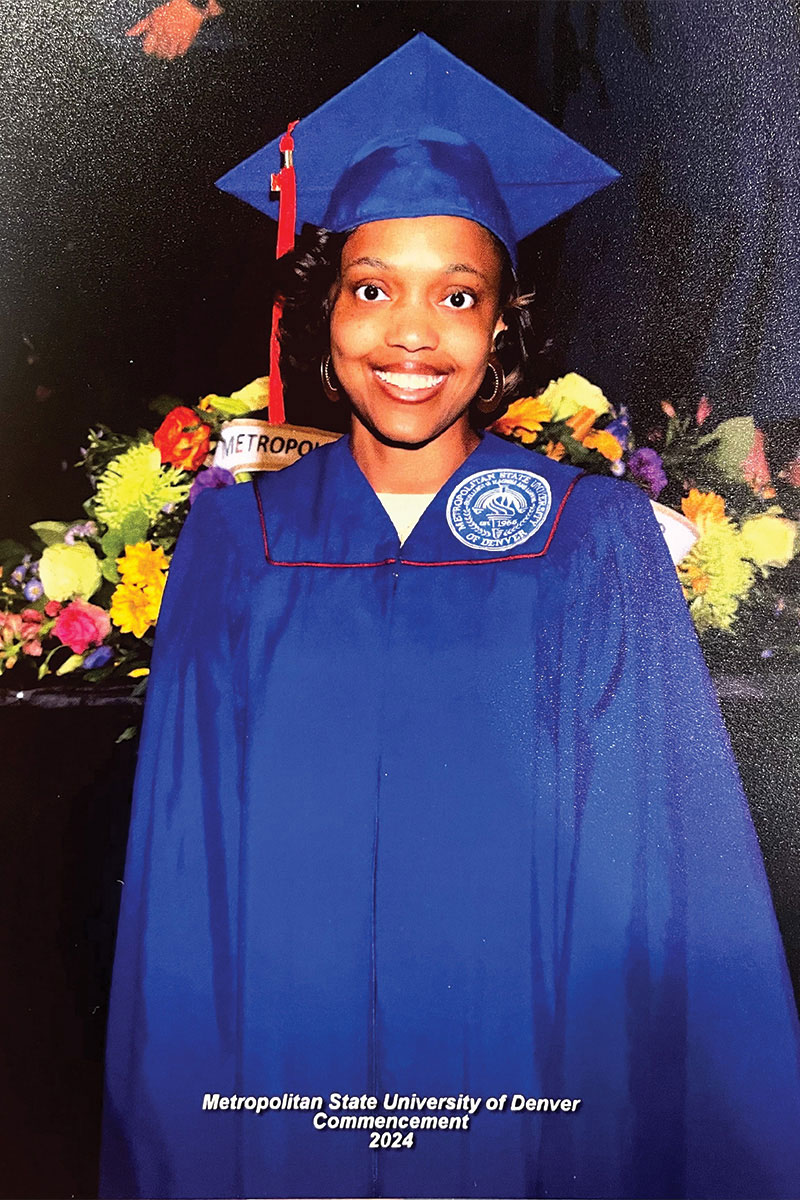
Jasmine and Jordan Davis were born with sickle cell disease and received many blood transfusions and red blood cell exchanges as young children.

Jasmine Davis was born with sickle cell disease and received many blood transfusions and red blood cell exchanges as a young child.

Jordan Davis was born with sickle cell disease and received many blood transfusions and red blood cell exchanges as a young child.
By Mary Jo Blackwood, American Red Cross of Colorado Public Affairs
You may not know this, but sickle cell disease is the most common genetic blood disorder in the U.S. It affects one out of every 365 African American babies born in this country. The consequences are devastating. In sickle cell disease, the red blood cells that are supposed to carry oxygen to all parts of the body are misshapen. Instead of being round and soft, making for easy flow within blood vessels, they are hard and crescent shaped. They clump and form blockages in blood vessels, creating a great deal of pain and damaging organs.
One of the ways to manage extreme pain and complications is through regular blood transfusions or red blood cell exchange of healthy red blood cells. In the U.S., over 100,000 people are living with sickle cell disease and may require frequent blood transfusions/red blood cell exchange throughout their lifetime, as many as one hundred units of blood per patient per year.
However, over time, those frequent transfusions can lead to patients developing an immune response from having blood from so many donors, and iron overload. All blood is not the same type. While blood is screened for types A, B, O, and AB, there are up to three hundred different antigens or factors within those types. Certain ethnic groups have higher percentages of certain antigens. Giving sickle cell patients blood with antigens common to African/Black Americans can decrease blood incompatibility.
The Red Cross realized that they needed to reach more African Americans to donate blood that would be more compatible with that of sickle cell patients. In 2021, they launched a sickle cell initiative to do two things: recruit more African/Black American blood donors and increase testing of blood for sickle cell trait. One in 13 African American babies born with SCT-sickle cell trait, but many are unaware that they carry that genetic trait. Having the genetic trait does not cause sickle cell disease, but if both mother and father have the genetic trait, there is a 50% chance of having a child with SCT – sickle cell trait and a 25% of having a child with SCD- sickle cell disease.
Meet a brother and sister who both had sickle cell disease for that reason, but are now considered cured through bone marrow transplant.
Jasmine and Jordan Davis were born with sickle cell disease and received many blood transfusions and red blood cell exchanges as young children. They had frequent transfusions to control the pain until hydroxyurea was approved for use in 1998 for adults and children in 2017. The drug increases the production of fetal hemoglobin and makes the red blood cells larger and rounder, preventing sickling and decreasing pain episodes.
However, they still had some pain episodes requiring hospitalization and needed transfusions of blood. In 2019 they were both deemed eligible for a stem cell transplant to replace their bone marrow producing sickle cells with a donor’s bone marrow producing healthy red blood cells. While her mother had sickle cell trait, she was still a good match to be a donor for her daughter. Jasmine had started college, but pain episodes led to hospitalization and interrupted her studies. At age 26, she checked into Children’s Hospital of Colorado for the transplant of stem cells from her mother’s bone marrow. Before the transplant she continued to receive red cell blood exchanges every month. Jasmine tells the story:
“Before the transplant, I had appointments with different specialists to make sure my body and systems could tolerate the transplant. They put in a central line to my blood vessel in my chest to give me the chemotherapy I was going to need and to take frequent blood samples. I had four kinds of chemotherapy and full body radiation to kill off the bad bone marrow and get me ready for the transplant. I was in the hospital for a month and a half. After wiping out my old bone marrow and getting my mom’s stem cells, it took a while for my bone marrow to start producing good red blood cells on its own. During that time, I still needed platelet donations because they got too low and could have caused bleeding.”
It took some months for her body to stabilize. She said she did not go out for three or four months, and then COVID hit, and they were mostly inside for that. Six years out from her transplant, however, Jasmine has the sickle cell trait but is considered cured from sickle cell disease. Last May, she graduated with her bachelor’s degree and is now working.
After she was out of the woods with her transplant, later the same year, Jordan underwent his own, with his father as his donor. His recovery was delayed because of a reaction to his father’s bone marrow, which put him back in the hospital a couple of times. He is now also considered cured and took away one significant positive experience from his transplant.
“When I was a kid, I was in the hospital with pain crises more than Jasmine, so I spent a lot of time around nurses. During my time in the hospital around my transplant, I was talking to a male nurse. I never saw any male nurses, especially Black male nurses, but he told me I might want to consider being a nurse. There are a lot of different types of nursing I could do. It was very inspirational.”
He took the advice and is now in nursing school and looking forward to a career as a registered nurse.
Since their transplants, in addition to stem cell transplant, two types of gene therapy are showing promise in trials with children. Until that becomes standard practice, however, sickle cell patients will continue to require blood and platelet transfusions. The Red Cross will continue their efforts in sickle cell trait testing and building partnerships with different organizations to increase access to blood donation in the African American community.
To schedule a blood donation appointment and learn more about sickle cell disease, go to: RedCrossBlood.org/OurBlood
Support all the urgent humanitarian needs of the American Red Cross.
Find a drive and schedule a blood donation appointment today.
Your time and talent can make a real difference in people’s lives. Discover the role that's right for you and join us today!